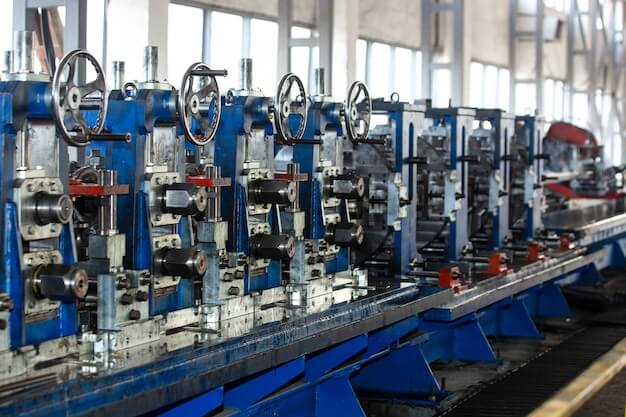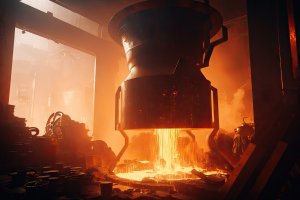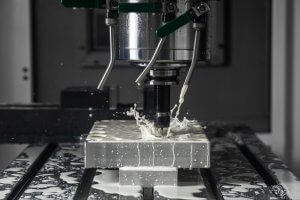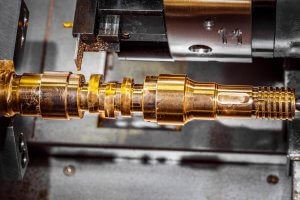Inconel vs. Monel: A Background and Their Relevance in CNC Machining in Extreme Environments
In the sphere of advanced manufacturing practices, particularly CNC machining for extreme environments, two categories of heat-resistant “superalloys” – Inconel and Monel – have consistently gained prominence due to their exceptional mechanical properties and corrosion resistance. Originating from the family of nickel-based alloys, both Inconel, a hybrid blend of nickel, chromium, and iron, and Monel, comprising primarily of nickel and copper, offer robust solutions when ordinary metals fail under harsh operational conditions.
- The high-temperature strength and oxidation resistance demonstrated by Inconel make it ideal for nuclear reactors, turbojet engines, and chemical processing units.
- On the other hand, Monel’s superior anti-corrosion abilities qualify it as a top option for applications involving highly corrosive surroundings like marine engineering components or chemical plant equipment.
- The ultimate choice between these superalloys substantially depends upon the specific requirements of the application at hand.
The rich combination of characteristics embedded within these particular alloy types provides CNC operators with an enhanced capacity to manufacture products capable of withstanding intense degrees of pressure and temperature, thereby solidifying their relevance in extreme environment machining processes.
Understanding the Basics of Inconel and Monel
Inconel is a superalloy made principally of nickel combined with chromium, among other metals. Its notable quality lies in its exceptional resistance to extreme heats and corrosive environments. This makes it an ideal material for applications that demand exposure to high-temperature circumstances like nuclear reactors or gas turbine engines. For instance, Inconel’s heat-resistant property is remarkably displayed in diesel exhaust systems, operating efficiently despite enduring scorching temperatures.
On the other hand, monel is another form of alloy consisting primarily of nickel and copper, along with smaller amounts of iron and manganese. It is appreciated for its considerable corrosion-resistance, particularly against certain chemicals and acids, making it valuable in marine settings and chemical plants. A prime example underscoring these properties would be its use in seawater cooling machinery wherein saltwater has truculent effects on most metals, yet monel remains substantially unscathed due to its unique composition.
Comprehensive Comparison between Inconel vs Monel
When comparing Inconel and Monel for CNC machining in extreme environments, it’s important to consider the following factors:
- Corrosion resistance in specific environmental conditions.
- Mechanical properties such as strength and ductility.
- Machinability and ease of fabrication for the intended application.
- Cost considerations based on the project requirements.
Exploring the Applications in CNC Machining
In any setting that demands superior resistance to temperature and corrosion, Inconel is often used in manufacturing CNC machine parts. This superalloy’s outstanding mechanical properties make it a go-to material for components exposed to extreme heat or harsh chemical environments.
- For example, jet engine blades are frequently made of Inconel due to its ability to maintain strength under high-temperature conditions.
On the other hand, Monel finds extensive use in creating corrosive-resistant and marine-based CNC machined components. Monel’s excellent corrosion resistance makes it suitable for applications subjected to saltwater or acidic environments.
- An instance of this might be the manufacture of propeller shafts on marine vessels with Monel, ensuring longevity despite exposure to salty seawater.
Inconel Alloy: Unique Advantages and Disadvantages
The Inconel alloy, typically used in extreme environments because of its high-temperature resistance, offers significant advantages for CNC machining. The key strengths include superior oxidation resistance and exceptional strength at elevated temperatures, making it ideal for jet engine components that endure severe thermal conditions. Nevertheless, this invaluable aspect comes with a downside. Machining Inconel can be challenging due to its work-hardening property which makes the cutting process slower compared to other alloys and potentially increases tool wear. Moreover, Inconel has lower conductivity than most metals, leading to heat concentration during machining.
Monel Alloy: Distinct Advantages and Disadvantages
Contrarily, Monel is appreciated for its excellent corrosion resistance, particularly in sea water and acidic environments. This unique feature extends its usability to marine applications and chemical processing units. It also maintains great mechanical properties from subzero temperatures up to 480°C. However, like Inconel, Monel provides its set of challenges while machining. Its gummy nature tends to decrease surface finish quality during machining operations, resulting in higher care required to achieve smoother finishes. Additionally, the cost factor cannot be ignored; Monel’s nickel-copper composition attributes to its expensive market price.
Considerations Before Choosing an Alloy
Prior to deciding one alloy over another for CNC machining in extreme environments, several crucial factors must be carefully examined. These include but are not limited to:
- The operating environment: Material selection immensely banks on the conditions it will be exposed to. Where Inconel excels in high-temperature ranges and shows remarkable resistance against oxidation and corrosion, Monel fares well with corrosive substances like seawater and acids.
- Budget constraints: While both alloys provide superior performance under stringent conditions, they come with different price tags. The cost of raw materials, production, operation and maintenance all add up and should align with your total budget.
- Safety limitations: Depending on the application, necessary safety certifications and standards need to be met by the chosen material. Safety compliance could greatly narrow down your options.
Consequently, a thorough analysis regarding these considerations is a prerequisite before making a final decision. By considering each factor closely, you can ensure that you select the best-suited alloy for your specific needs while maximizing efficiency and longevity.
Related Posts
- Inconel vs. Monel for CNC Machining: A Comprehensive Material Comparison
CNC Machining and Material Importance in Manufacturing Computer Numerical Control (CNC) machining is a manufacturing process that leverages computers to control machine tools including lathes, mills and grinders among others.…
- Inconel vs. Monel for CNC Machining: Which Nickel Alloy Reigns Supreme?
Introduction to Nickel Alloys in CNC Machining Computer Numerical Control (CNC) machining, a pivotal manufacturing process, uses pre-programmed software to dictate the movement of factory machinery and tools. The efficiency…
- Precision CNC Machining of Steel: High-Volume Production
Precision CNC Machining and High-Volume Production As an integral part of modern manufacturing processes, Precision Computer Numerical Control (CNC) machining brings about unmatched accuracy and consistency in the production of…








